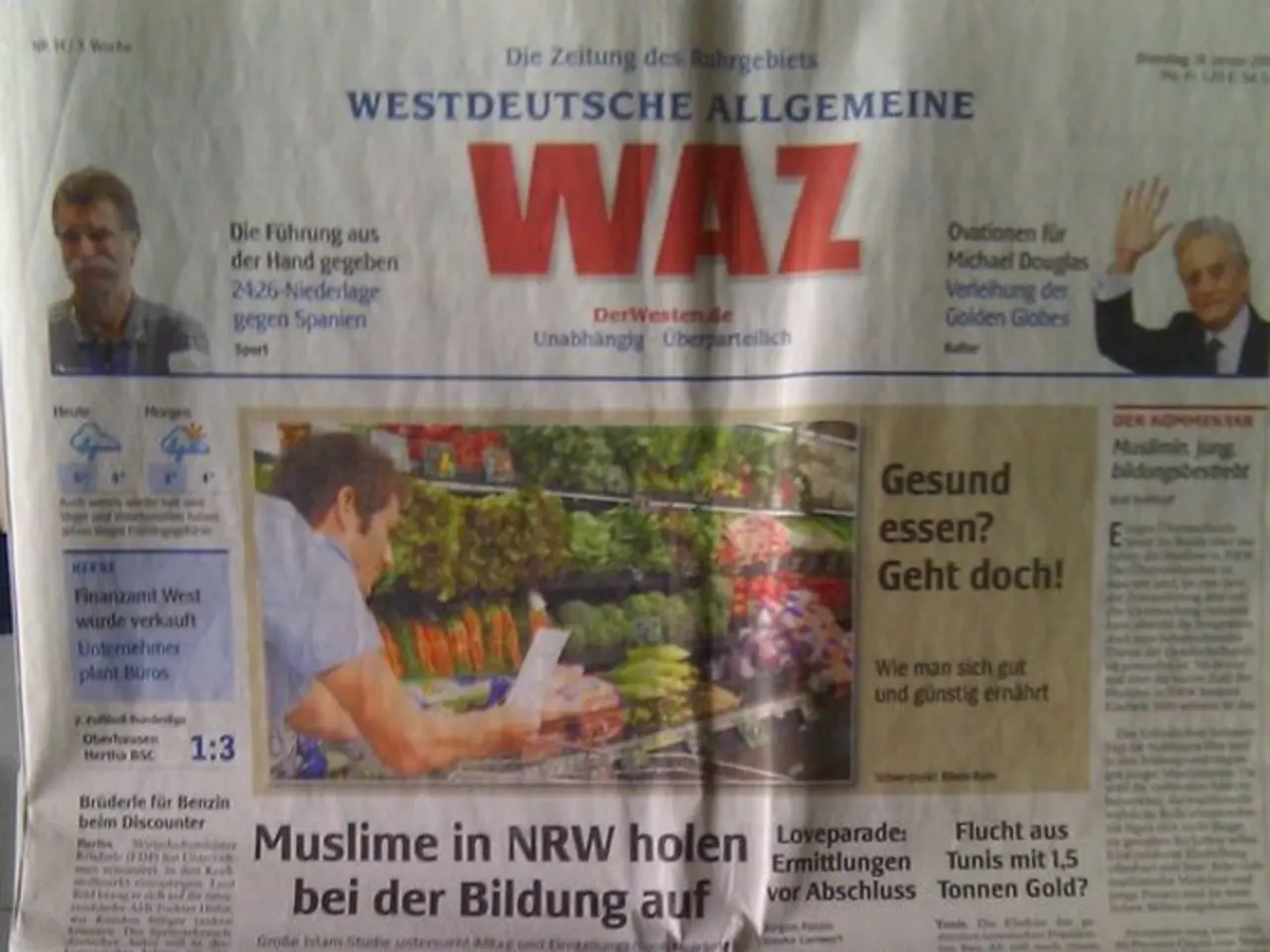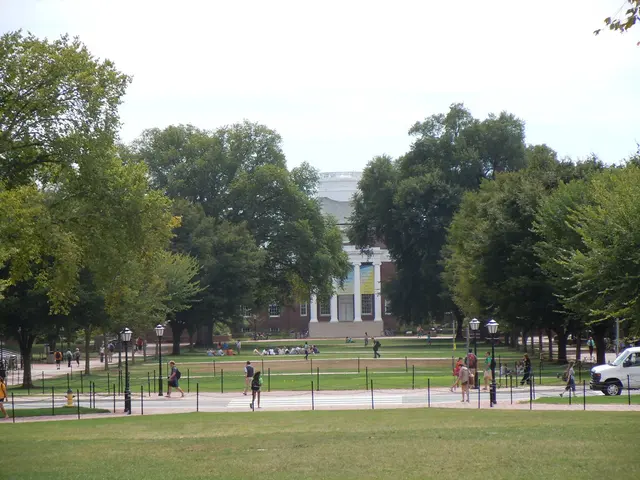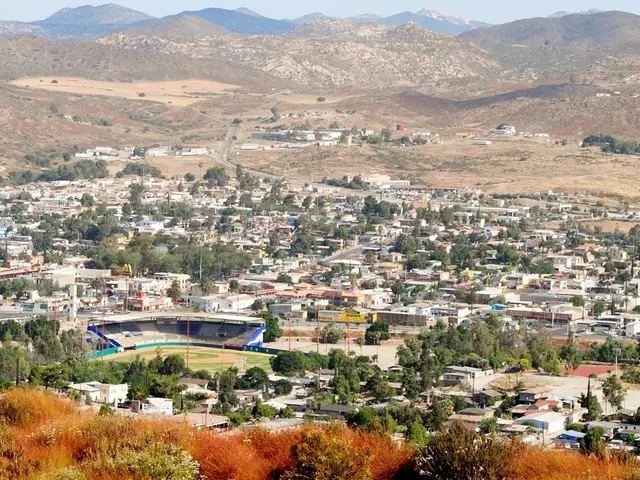Vietnam News and Law Agency Lends Momentum to EPR Awareness Campaign for Promoting Green Economy
Vietnam has taken a significant step towards sustainable development by implementing the Extended Producer Responsibility (EPR) regulation, which became mandatory on January 1, 2024. This landmark policy requires producers and importers to take financial and operational responsibility for collecting, recycling, or treating waste generated from their products and packaging.
The policy, which aligns with global trends and investor expectations, is currently facing challenges such as inconsistent regulations, unclear legal definitions, limited access to information for businesses, weak recycling infrastructure, and disputes over cost-sharing among stakeholders. To address these issues, the Ministry of Agriculture and Environment is drafting a new decree aimed at improving regulatory clarity, enforcement, and transparency.
The draft decree is open for public consultation and aims to streamline the existing policies to support effective EPR application tailored to Vietnam’s context. The government and industry stakeholders are engaging in forums and dialogues, such as the “Green Packaging Forum 2025,” to foster collaboration, innovation in eco-design, SME support, and integration of EPR systems with ESG and branding strategies.
At the Green Packaging Forum 2025, industry leaders called for better inter-sector coordination, improved financial mechanisms, and stronger digital systems to track compliance and performance. Over 100 delegates from government agencies, multinational firms, recyclers, academic institutions, and international organizations attended the forum.
Larry Lee, deputy general director of Strategic Assets & Sustainability at SABECO, views EPR as a driver of transformation and a lens to reimagine packaging, rethink waste, and rebuild value. EPR is essential to drive circular economy models and environmental protection in today's ESG-focused landscape.
The policy applies across multiple sectors, including food and beverages, consumer goods, and electronics. Mandatory recycling quotas have taken effect this year, requiring businesses to either recycle packaging themselves or contribute to a national environmental fund.
Public awareness is a critical part of the puzzle, and the media must help frame EPR as a strategy for long-term value creation. Nguyen Quoc Tuan, director of the News Agency's Southern Information Centre, and Nguyen Minh, Editor-in-Chief of Viet Nam News and Law, are leading the charge in promoting Extended Producer Responsibility and sustainable business practices.
Viet Nam News and Law, the national English-language publication of the News Agency, founded in 1991 and merged in 2025 with Law & Legal Forum, is playing an active role in this endeavour. Buì Le Ân Thanh Khiẹt, head of the Plastic Circular Unit at the Institute for Circular Economy Development, calls for the creation of sector-specific EPR councils, stronger enforcement, and more public education campaigns.
Vietnam, one of the first Southeast Asian countries to make EPR legally binding, is demonstrating its commitment to sustainable development and circular economy models. The government is working with businesses to build a stable and supportive policy environment, paving the way for a greener and more sustainable future.
[1] Vietnam News & Law [2] Law & Legal Forum [3] Institute for Circular Economy Development [4] SABECO
- The government and industry leaders believe that better inter-sector coordination is essential for effective Extended Producer Responsibility (EPR) application.
- The Extended Producer Responsibility (EPR) policy aims to rebuild value by reimagining packaging, rethinking waste, and driving circular economy models.
- Larry Lee, from SABECO, views EPR as a driver of transformation in Vietnam's packaging sector.
- EPR is a strategy that aligns with global trends and investor expectations, promoting environmental protection in today's ESG-focused landscape.
- The government is working with businesses to build a stable and supportive policy environment for EPR implementation.
- Over 100 delegates, including government agencies, multinational firms, recyclers, academic institutions, and international organizations, attended the Green Packaging Forum 2025.
- The "Green Packaging Forum 2025" fosters collaboration, innovation in eco-design, SME support, and integration of EPR systems with ESG and branding strategies.
- The draft decree aims to improve regulatory clarity, enforcement, and transparency for effective EPR application tailored to Vietnam’s context.
- The Ministry of Agriculture and Environment is drafting a new decree to address issues such as inconsistent regulations, unclear legal definitions, and weak recycling infrastructure.
- Disputes over cost-sharing among stakeholders are among the challenges facing the current EPR policy implementation.
- The government and stakeholders are engaging in dialogues to foster collaboration and strengthen EPR systems in Vietnam.
- Stronger digital systems and improved financial mechanisms are required to track compliance and performance in relation to EPR.
- Public education campaigns are crucial for increasing public awareness about EPR and its importance for sustainable development.
- Nguyen Quoc Tuan and Nguyen Minh are leading efforts to promote Extended Producer Responsibility and sustainable business practices in Vietnam.
- The media has a critical role in helping to frame EPR as a strategy for long-term value creation.
- Sector-specific EPR councils, stronger enforcement, and continuous public education campaigns are key recommendations for improving EPR implementation in Vietnam.
- Climate change and environmental protection are at the forefront of the government's policy agenda, as Vietnam seeks to reduce its carbon footprint and promote sustainable development.
- The mandatory recycling quotas introduced this year require businesses to either recycle packaging themselves or contribute to a national environmental fund.
- Vietnam's commitment to sustainable development is demonstrated by the implementation of EPR regulations, which are aimed at promoting a circular economy and reducing waste.






